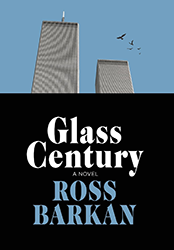Even the most stable of families must weather the turbulence of children fumbling toward maturity. Bad choices by rebellious teens can fracture a solid foundation, but a healthy family moves past the damage, the miscreant wiser from having learned from mistakes.
But what if such choices have the power to disintegrate the family bedrock? Such is the case in the novel Man of My Time, by Dalia Sofer. In her second novel — like the first, set in Iran — this scenario plays out as the Iranian Revolution gathers force and explodes in 1979, with cataclysmic results. Within this political backdrop, the story of the Mozaffarian family unfolds toward the present, its narrator the eldest son, Hamid.
In “Part One,” set in 2017, Hamid travels to New York on Iranian government business, where he sees his mother and brother for the first time in nearly four decades — since the day he dropped them and his father off at Mehrabad as they fled their country. As he returns to Tehran with his father’s ashes, Hamid reflects on his childhood, a particularly terrible choice he made as a teen, the violence that marked it, and how he was told — and believed — that this action had set him on a path of no return.
Themes of betrayal, fate, and loss permeate the novel and intensify in “Part Two.” Sofer brilliantly paces her story, interweaving past and present as Hamid reflects on his marriage and divorce, acknowledging how he has caused his wife and beloved daughter, like his parents and brother, to suffer. And Hamid is not the only one in his family to betray his loved ones; one might say it is a tradition. As he sits in a Tehran café, he considers how, under political pressure in a different era, his father betrayed his best friend and how he has betrayed his loved ones — and how such personal tragedies within a larger political context seem inevitable. Looking at the people around him, Hamid reflects that they, “like me, were trapped in the trajectory of some unknowable misfortune.”
Sofer offers a meticulously researched, authentic portrayal of how a society’s implosion and an individual’s choices within it can reverberate within and ultimately destroy a single family. Man of My Time is also an elegy for Iran, the place of her birth in 1972. Hamid reflects — more sensitive than many, despite a job that deadens his humanity: “I knew that what was happening in the world, despite its absurdity, would one day be written up as history, as everything up until that moment had been.…Suddenly, I felt in my heart a piercing pain that foretells a loss. It was a stab not at the vanishing of people, but of places, those that were mine…and those that weren’t.”
Early in the story the teenager Hamid returns home from a political meeting, surveys his family comfortably arranged in the living room, and thinks: The city is cracking. He has no idea how right he is, and readers are well advised to take this cautionary tale to heart. The tragedy within this magnificent novel is what makes it, sadly, realistic on two levels: how youthful betrayals that fracture a family’s foundation may be, in the end, irreparable; and how the destruction of a seemingly stable country can occur with startling speed — whether it’s a developing country in the 1970s fighting gharbzadeghi—“westoxification” — or a first-world country in 2020, experiencing fissures within its own bedrock.
Amy Spungen, a freelance editor and writer, has a BS in journalism from Virginia Commonwealth University and an MA in English from Northwestern University. She lives near Chicago in Highland Park, Illinois.





